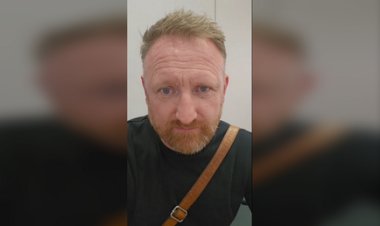This Physician Relocated Out of State to Train in Performing Abortions
In the wake of Roe v. Wade being overturned, numerous states have imposed strict limitations on abortion, leading to a significant decline in abortion training programs. This article follows one doctor's quest to secure the necessary education, no matter the obstacles faced.

Under the watchful eye of the attending abortion provider, she commenced the setup procedures she had been observing over the past weeks. This included injecting the painkiller lidocaine around the patient’s cervix and using a speculum. However, difficulty arose when her speculum began to collapse due to extra tissue, obscuring her view of the cervix.
“All this extra tissue was collapsing around my speculum, and I could not see the cervix very well,” she confessed. “There are tricks for things like that, but I am not yet at a skill level where I have the ability to troubleshoot.”
The patient, sensing something amiss, asked, “Is everything OK?”
This moment underscored the humbling novice experience the doctor faced, a recurring theme throughout her Delaware training stint. This training was crucial since the 2022 Supreme Court decision overturning Roe v. Wade had severely limited abortion access and training in her home state.
The overturning of Roe v. Wade forced her to seek out-of-state training, as her specialties in internal medicine and pediatrics did not include mandatory abortion training. The lack of in-state opportunities and the similarities between miscarriage and abortion procedures led her to Delaware, where she filled her days with training and her free time studying for board exams and managing long-distance patient care.
Discussing her impetus for seeking this training, she expressed, “It felt like a moral imperative,” she said. “I don't want my kids, my pediatric patients, having babies of their own before they're able to do the things that they tell me they want to do at each clinic visit — graduate high school, graduate college, find a partner, do all of these things.”
Upon a particularly challenging procedure, she had to ask the more experienced physician to take over. This event reinforced her understanding of needing more extensive training.
Post-Dobbs, the challenges have intensified, not just for her but for many residents across the nation who now seek out-of-state abortion training. With the structure of training permanently altered, concerns loom about the adequacy of medical education in handling obstetric emergencies.
The doctor remains unsure about how she will utilize her newly acquired skills, considering private practice or sporadic clinic work in a supportive state. But her ultimate goal remains clear: to never be unprepared when a patient needs an abortion procedure.
This narrative reflects the broader implications of policy change on medical training and patient care, as the nation's medical educators and residency directors navigate a landscape reshaped by legal and ethical debates regarding abortion.As the doctor navigates her final weeks in Delaware, she continues to grapple with the emotional and ethical complexities that arise from her training. Each day presents a mix of technical training and real-world consequences for patients, sharpening her clinical skills while deepening her resolve to advocate for access to abortion care.
During one procedure, she encountered a patient whose anxiety visibly escalated. The patient had never undergone a pelvic exam or abortion before and became increasingly distressed during the process. Recognizing the situation, the doctor stepped aside and allowed the experienced physician to guide the patient through a calming meditation, emphasizing the importance of patient autonomy and comfort.
Throughout her training, the doctor also learned valuable lessons about the nuances of patient care. One significant aspect was understanding the emotional and psychological factors that could influence a person's decision to seek an abortion. She observed how clinic staff sought to create a supportive environment through small gestures, like using neutral language to avoid triggering trauma in patients with past experiences of sexual violence. This commitment to compassionate care reinforced her belief that abortion services should be treated as a normal aspect of health care rather than a controversial anomaly.
Amidst her training, logistical challenges persisted. Living out of various hotel rooms, she faced frustrations ranging from malfunctioning appliances to the emotional toll of being away from her support systems, particularly her partner. Yet, despite these discomforts, her determination to gain knowledge and skills in abortion care remained unwavering.
As the training came to a close, she had performed several surgical abortions and prescribed medication abortions, each procedure providing her with insights into the lives and circumstances of her patients. She began to see patients not just as medical cases but as individuals with complex stories and needs.
Reflecting on her experiences, she expressed frustration at the barriers placed before medical residents like her. While she entered her training eager to learn, the circumstances surrounding abortion care in her home state highlighted a significant gap in educational opportunities for future practitioners.
“Why was seeking out the training so much harder than the training itself?” she pondered, feeling disillusioned with the institutional barriers that restricted access to such crucial skills.
In her final days in Delaware, she was grateful for the chance to gain firsthand experience in a safe and supportive environment. Yet, she remained acutely aware that such opportunities are rare and may not be available to other residents facing similar barriers in restrictive states.
As she prepared for her return home, she reflected on her commitment to fostering change within her own residency program. She envisioned advocating for her fellow residents to pursue out-of-state training, despite understanding the challenges that lay ahead. When she arrived back in her conservative-leaning state, she was aware that the risks associated with her desire for more comprehensive training extended beyond personal ambitions; they included her professional reputation and potential backlash from peers.
In a debrief with her residency program, she set forth her learnings, advocating both for herself and other residents. Although no one had taken her up on her offer to pursue similar training yet, she remained hopeful that her experience would inspire future cohorts of medical professionals to seek the skills they would need to provide full-spectrum care.
Ultimately, as the doctor pondered her next steps, she solidified her intention to advocate for women's healthcare. She realized that the challenges she faced in Delaware, while daunting, had fortified her resolve to pursue a medical career focused on patient autonomy and comprehensive reproductive health services.
“I can’t go back and change where I applied,” she emphasized, “but I can decide where I will take my expertise in the future.”
With a newfound understanding of the complexities involved in abortion care, she felt a call to action to ensure that no other residents would face the same limitations she had encountered. As she began to brainstorm new ways to share her insights and support her peers, she recognized a persistent truth: access to abortion care is not just about medical procedure; it is a fundamental issue of human rights and healthcare equity.
In this pivotal moment, she emerged not just as a doctor in training, but as a passionate advocate for both her present and future patients, motivated by the belief that every individual deserves compassionate care, irrespective of their circumstances.
Mathilde Moreau for TROIB News












